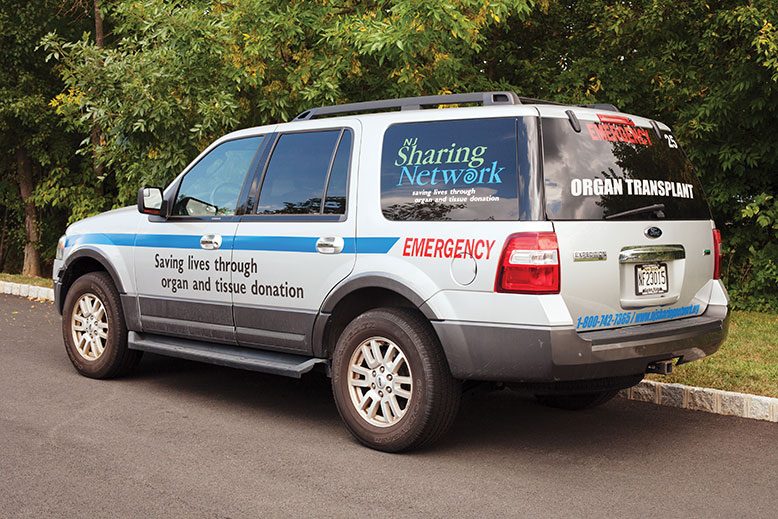
When you register as an organ donor in New Jersey—often done when renewing a driver’s license—you are immediately entered into a database that can be accessed nationally.
Registering means you are signing what is called a legal document of gift, affirming your wish to donate organs and tissue should anything happen to you. One person can save up to nine lives through organ donation and benefit the lives of more than 50 individuals through tissue donation.
Once registered, only you can revoke your authorization to donate, and your choice supersedes that of your loved ones if their wishes happen to differ. However, if you are not registered, or are too young to register (you must be 18 years or older; 14 or older with parental consent online) the decision to donate is placed in the hands of your loved ones. This life-giving option is often turned down by family members because of myths associated with donation—the same myths that keep people from registering in the first place.
Oscar Colón, a clinical donation specialist with the Sharing Network, says a major mission of the organization is to educate people about the reality of organ and tissue donation. (Read the article here.) Here are some of the common myths that the organization works to dispel:
MYTH: Doctors and emergency personnel will give up on saving the life of a registered donor.
REALITY: For all health personnel, the first impulse is to save a life. “They’re not going to stand there and look at your license to see if you’re an organ donor or not,” says Colón.
In fact, the Sharing Network is the only organization that can determine a patient’s suitability for organ donation—and they are not called in to make that decision unless the prognosis is grave and doctors have determined there is no chance of recovery, that death is imminent, or that the patient has died.
MYTH: Organ donation is against my religion.
REALITY: Colón says it is untrue that most major religions oppose organ and tissue donation. “All major religions endorse donation as the ultimate sacrifice,” he says. Most religions, he adds, “leave it up to a personal decision.”
The Sharing Network website has a section dedicated to explaining the views of nearly every religion in regards to donation.
MYTH: My departed loved one will be disfigured during the recovery of organs.
REALITY: Organ and tissue donation is a surgical procedure, “done in a very sterile technique with certified and licensed personnel,” says Colón. Even when long bones are procured, reconstructive surgery is done so families can still have an open casket if desired. Additionally, the Sharing Network has close relationships with funeral homes across their coverage area to accommodate the requests of mourning families.
MYTH: I’m too old or too ill to donate organs.
REALITY: There is no upper age limit for donation. Fitness for donation is “based on how physically fit that person is and how the organs are functioning,” says Colón. “Same goes for tissue.” In fact, the Sharing Network has procured organs from newborns all the way up to senior citizens.
Additionally, while certain health conditions or parameters may limit what organs and tissue can be procured, Colón says people should not rule themselves out because of an illness. “Hepatitis B and hepatitis C are not rule-outs—you can transplant to people who already have the virus,” he says. “Or maybe there’s a patient with a history of hypertension, there’s still a possibility their liver could be donated, or the lungs. So when we do an assessment, it’s a thorough assessment to determine which organs are suitable for transmit.”
Find out more, visit the Sharing Network website.
